Find a Location
Posted: April 2, 2025
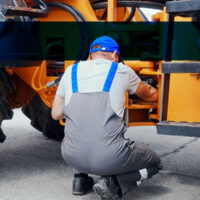
From digging foundations to lifting massive loads, construction equipment is the cornerstone of building and road projects. While proactive equipment maintenance helps prevent unexpected breakdowns, sudden equipment issues can still arise. When this happens, it’s important to recognize the signs that suggest you need urgent on-site repairs. As a construction professional, spotting these indicators will… Read More
Categories: Best Practices
Posted: March 6, 2025
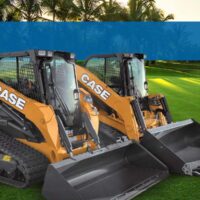
Over 26 million people played golf in the United States in 2023, making golf one of the most popular sports. Attracting the attention of the many golf players across the country requires some careful maintenance and upkeep from golf course managers and their teams. A beautiful, well-kept golf course stands out amongst the competition. However, heavy… Read More
Categories: Best Practices
Posted: January 28, 2025

Heavy machinery is the workhorse of the construction industry. Businesses rely on these machines to perform in harsh environments and generate revenue. Regular maintenance maximizes your investment by extending equipment life span and improving performance. A strategic maintenance plan can mitigate costly repairs or replacements. Explore the benefits of proactive maintenance and tips to keep… Read More
Categories: Best Practices
Posted: January 2, 2025
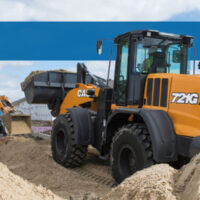
Obtaining the proper construction equipment for projects supports operational efficiency and safety for jobsites. These include equipment for clearing and reshaping the land, moving soil and construction materials, site grading, and more. Beyond finding the right machinery, you also want to maximize your investment with adaptable construction equipment features that can be used for multiple… Read More
Categories: Best Practices
Posted: September 23, 2024
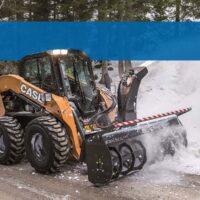
Street cleaning, sewer maintenance and snow removal are just a few critical tasks your municipality manages to maintain your local community. Though operator training and adequate staff are essential for these routine maintenance tasks, the equipment they use is just as important. Heavy construction equipment enables you to complete a variety of jobs with efficiency,… Read More
Categories: Best Practices
Posted: September 23, 2024
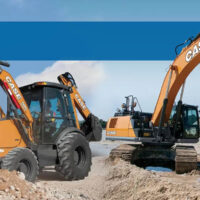
Efficient, quality construction requires the correct tool for each job. Backhoes and excavators are two of the most valuable pieces of digging and earthmoving equipment, but how do you decide between them? When time and money are tight, you must invest in machinery that lets you complete tasks on time and under budget without sacrificing… Read More
Categories: Best Practices
Posted: July 9, 2024
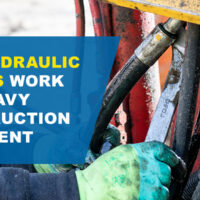
Hydraulic systems are critical components of heavy construction equipment. They power a wide range of machines, including excavators and bulldozers. When hydraulic systems fail, it can quickly bring a construction project to a halt. Understanding hydraulic systems and how to repair them is essential for maintaining efficient operations. Let’s take a look at hydraulic repairs… Read More
Categories: Best Practices
Posted: May 1, 2024
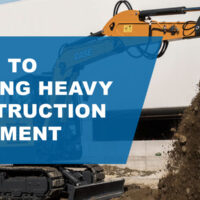
Renting heavy equipment is a convenient, cost-effective solution for those in the construction industry. Renting means accessing the right equipment when you need it and getting to try out the latest models, attachments and technological advancements without investing in new machinery. Understanding heavy equipment rentals, their benefits and best practices can simplify the process and… Read More
Categories: Best Practices
Posted: March 13, 2024
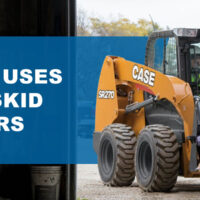
A skid steer loader is a versatile machine that can maneuver in tight spots and perform various material handling, excavating, earth-moving and loading tasks. You can also attach accessories such as blades, stump grinders, snow blowers and rakes to get even more work done. This single piece of equipment completes jobs efficiently, making it an… Read More
Categories: Best Practices
Posted: March 13, 2024
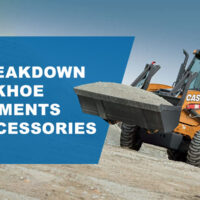
Backhoes are highly versatile, capable of breaking, plowing, drilling, digging and more. Rather than purchasing specific machines to accomplish each of these tasks, you can rely on a backhoe and attachments to save storage space and money. Backhoe attachments are excellent additions for equipping your fleet to complete a range of projects, including trenching, grading,… Read More
Categories: Best Practices
Posted: June 6, 2022
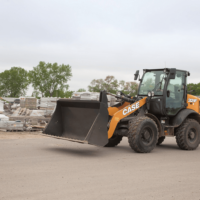
Investing in used construction equipment is a cost-effective approach to taking on and completing jobs without breaking the bank. However, before you begin the search for the used heavy construction equipment you need, keep a few things in mind. Whether you work in construction, agriculture, landscaping, or roadwork, the key to long-lasting used equipment is… Read More
Categories: Best Practices
Posted: November 4, 2021
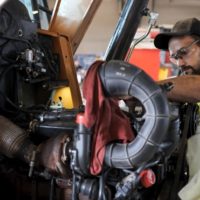
Heavy Equipment Maintenance Checklist If you’ve read our article on warning signs, you probably have an idea of when equipment maintenance is needed. With the winter season and harsh weather conditions right around the corner, it’s crucial that contractors and business owners take care of their heavy equipment in preparation. Whether your business has to… Read More
Categories: Best Practices
Posted: November 22, 2019
Asphalt Compaction Tips Annual Inspection Remember to have your asphalt compactor serviced annually by a trained, certified technician to maximize productivity. Asphalt Compaction Considerations A number of factors affect the final result in any asphalt compaction job. Keep the following factors in mind during any job: Mix Temperature – In general, the higher the temperature… Read More
Categories: Best Practices
Posted: November 22, 2019
Asphalt Paving Operator Safety Avoid injuries and accidents with these helpful operator tips Pre-operation All equipment and materials should be inspected prior to each shift to ensure proper operation and asphalt distribution When working on a roadway, check all warning and detour signs to prevent unsafe vehicle traffic near your operators Plan flagger positions in… Read More
Categories: Best Practices
Posted: November 22, 2019
Avoid Repairs with Operator Training Operator error is the most common cause of equipment repairs. Proper operator training is essential to avoid damage caused by negligence and oversight. Conduct daily walkaround inspections It is essential that operators perform daily walkaround inspections for any equipment that is used on a jobsite. A careful inspection will allow… Read More
Categories: Best Practices
Posted: November 22, 2019
Cold Weather Operation Protect your machine If you can’t keep your machine inside when it’s not in use, at least keep a weather resistant tarp over the engine. With snow comes condensation, which can cause problems for the entire engine. Manage productivity Cold weather makes the earth harder, and frost can penetrate roadways and aggregates… Read More
Categories: Best Practices
Posted: November 22, 2019
Compact Track Loader and Skid Steer Operation The versatility of skid steer and compact track loaders makes them a staple on almost any jobsite. Follow our best practices to make sure you are getting the most out of your equipment by completing work efficiently and safely. Always wear your seatbelt Rollover accidents are a leading… Read More
Categories: Best Practices
Posted: November 22, 2019
Coolant Tips Coolant is important in your equipment’s cooling systems to prevent freezing, corrosion, cavitation, and rust. A periodic coolant analysis can provide important information about the health of your machine. What’s in coolant? Nearly all heavy-duty antifreeze is about 95% ethylene glycol and 5% water and additives. About 1% of all antifreeze sold is… Read More
Categories: Best Practices
Posted: November 22, 2019
Cutting Edges Operating Tips Avoid back dragging Back dragging reduces cutting edge life by causing it to break before it wears down. Minimize excessive down pressure Buckets last longer if the operator minimizes the amount of pressure applied when the bucket is engaged with the ground. Avoid using blades in wet conditions Blades wear… Read More
Categories: Best Practices
Posted: November 22, 2019
Dealing with Changing Tire Pressure during the Winter Underinflated tires are a drain on your business. Low tire pressure increases fuel usage and wear. Follow these best practices to get optimal performance from your equipment. Check tire pressure regularly You can’t check tire pressure with a visual inspection. Many tires will look properly inflated… Read More
Categories: Best Practices
Posted: November 22, 2019
Excavator Safety Earthmoving projects pose a variety of dangers to excavator operators and anyone else on the jobsite. Follow our tips below to ensure a safe project. Preliminary Checkpoints Check fuel levels It sounds simple, but make sure the machine has enough fuel before putting it to work. Your excavator should be able to… Read More
Categories: Best Practices
Posted: November 22, 2019
Filter Tips Here are the basics of filters About Filters Changing filters regularly is essential for your equipment to perform its best. Recommended intervals for filter changes vary between 250 and 500 hours. It can be tempting to select a bargain filter brand, but an inferior filter can make a big difference in the long… Read More
Categories: Best Practices
Posted: November 22, 2019
Fleet Management Strategies Properly managing equipment is crucial to maintain your return on investment. A general guideline to follow is replacing equipment once maintenance costs exceed 30% of the machine’s resale value. Below are strategies to help keep your fleet productive for as long as possible. Proactive maintenance Enroll equipment into preventive maintenance contracts… Read More
Categories: Best Practices
Posted: November 20, 2019
Fluid Analysis SERVICES Analyzing system fluids reveals actual internal conditions Contaminant levels predict component failures accurately Oil analysis records prove your equipment has been maintained and help increase resale value Any make, any model GT Mid Atlantic offers fluid analysis kits to monitor the internal health of your equipment. Performing fluid analysis at regular intervals… Read More
Categories: Best Practices
Posted: November 20, 2019
Fuel Saving Tips When using heavy machinery, certain practices can help reduce overall fuel consumption and costs. The following tips may help you save hundreds of dollars each year. Inspect air filters regularly Inspect your air filters every 50 hours to ensure maximum operating performance. If the pleats of your filter are clogged with… Read More
Categories: Best Practices
Posted: November 20, 2019
Heavy Equipment Theft Several proactive actions can be put into practice to discourage heavy equipment theft. The National Insurance Crime Bureau (NICB) estimates annual losses from heavy equipment theft are as high as $1 billion. Costs associated with theft include equipment replacement, short-term rentals, lost time dealing with law enforcement and adjusters, labor costs due… Read More
Categories: Best Practices
Posted: November 20, 2019
How Drones Are Changing the Construction Industry Drones, officially known as unmanned aerial vehicles (UAVs), are changing our society in unprecedented ways, including the construction industry. Though relatively new technology, drones have already become integral tools for contractors, site managers, and others in our field. Here are six ways drones have already altered the construction… Read More
Categories: Best Practices
Posted: November 20, 2019
Hydraulic Hose Choose the right hose When choosing a hydraulic hose you should pay close attention to the following characteristics: Working Pressure – Choose a hose that is suitable for the working pressure of the machine Wire or Sheathing – Install wire or sheathing when fabricated if the hose will be used in an area… Read More
Categories: Best Practices
Posted: November 20, 2019
Loader Backhoe Operation Loader backhoe use can be difficult for both new operators and the most experienced ones. Follow our best practices for safe operation. Preliminary Checkpoints Prework checklist Walk around the machine and verify that all attachments are securely mounted and that all external functions, such as the loading bucket or excavator arm,… Read More
Categories: Best Practices
Posted: November 20, 2019
Lowering Owning and Operating Costs The construction industry continues to grow as the economy improves; more jobs are out to bid – yet contractors still find themselves in a competitive environment where it’s important to find every edge possible. One area where contractors can get more competitive is in lowering the owning and operating costs… Read More
Categories: Best Practices
Posted: November 20, 2019
Lubricant Tips Choosing the right lubricant for your machines is critical to maximizing the life of their components and minimizing downtime. For optimal machine operation, adhere to specifications in the owner’s manual. We have put together lubricant tips to enhance your equipment’s operation. Hydraulic Oil/Fluid Why is it important? Hydraulic oil’s primary purpose is… Read More
Categories: Best Practices
Posted: November 20, 2019
Machine Winterization Tips Follow these best practices to make sure your machine is ready for winter. Check chain tanks, final drives, swing gear baths, and gear boxes for water Check the label to make sure you’re using coolant that complies with ASTM standard D-621, with a freeze point low enough for your climate. If… Read More
Categories: Best Practices
Posted: November 20, 2019
Maintaining Your Compact Excavator Spring is here, and for most of us, that means that the jobs are piling up for the busy season. We all know that time is money, and equipment downtime on a jobsite can ruin profits, so I thought I’d share some basic maintenance tips to help you keep your compact… Read More
Categories: Best Practices
Posted: November 20, 2019
Best Practices for OAT Coolant Never Mix OAT with Regular Coolant Mixing coolants can cause a loss of stability in the corrosion inhibitor, cavitation erosion, and gelling damage. This type of damage is not covered by your warranty, and repairs can cost thousands of dollars. Adding as little as 10% of regular coolant in… Read More
Categories: Best Practices
Posted: November 20, 2019
Operator Safety Tips Follow these guidelines to help reduce injuries due to operator error. Contact the GT Mid Atlantic location nearest you for all your safety equipment needs. Check pins and bushings Pins and bushings can loosen over time, causing a safety hazard. Establish a maintenance routine which includes checking, tightening, and replacing pins… Read More
Categories: Best Practices
Posted: November 20, 2019
Preseason Preparation Follow these best practices to make sure your machine is operating at its best before the busy season. A little prevention goes a long way in reducing costly downtime. Make sure machines are properly greased Lubricate your machine according to the manufacturer’s recommendations. By keeping your machine properly lubricated, you reduce premature… Read More
Categories: Best Practices
Posted: November 20, 2019
Best Practices for Personal Protective Equipment While employers are required to enact controls and measures to guarantee a safe work site, the fact is that accidents happen, and that’s where personal protective equipment (PPE) comes in. They are essential tools to stop an incident from becoming an injury. They are also the employers’ responsibility. While… Read More
Categories: Best Practices
Posted: November 20, 2019
Quick Coupler Safety Tips Quick couplers are used on most jobsites. Using quick couplers safely and responsibly can reduce risk of injury and damage on the job. Follow the below tips to make sure you are taking proper precautions when using quick couplers for your attachments. Take Precautions Train your operators To prevent accidents… Read More
Categories: Best Practices
Posted: November 20, 2019
Radiator Care Never open or inspect the radiator while the engine is running or the system is hot Personal injury can result from hot, pressurized coolant. Always shut off the engine and allow the radiator to cool before examining the system or beginning any work. Keep coolant fresh It’s estimated that 40 – 60% of… Read More
Categories: Best Practices
Posted: November 20, 2019
Remanufactured Parts Tips Why Purchase Remanufactured Parts? Cost Less Remanufactured parts cost less than new parts, often as much as 25 – 45% less. Same Specifications as New When parts are remanufactured, they are completely disassembled, cleaned, inspected, re-engineered, and rebuilt with new components to meet OEM specifications. All parts are tested to ensure… Read More
Categories: Best Practices
Posted: November 20, 2019
How to Get Ready for Spring Construction Prepare your crew for the spring construction season with these helpful tips. Wear the right gear April showers bring more than just flowers when it comes to construction jobsites. They also create wet surfaces that operators can slip or fall on. A way of preventing the hazards… Read More
Categories: Best Practices
Posted: November 20, 2019
Stay Cool when Working in the Summer Heat Serious health complications are always a concern when working outdoors in high temperatures and humidity. Help your employees stay productive and healthy with these tips. Learn to recognize the signs of heat exhaustion and stress. Symptoms often include confusion, dizziness, fatigue, and cramping. Any workers showing these… Read More
Categories: Best Practices
Posted: November 20, 2019
Staying Warm in Cold Temperatures During the winter months, it’s important to stay warm when working outdoors in cold temperatures to retain body heat and avoid hypothermia and frostbite. The following best practices will help you and your team while operating in the winter. Prepare your equipment Air Filters Check and, if necessary, replace… Read More
Categories: Best Practices
Posted: November 20, 2019
Skid Steer Maintenance Skid steers are some of the most widely used, reliable, and cost-effective machines on the market. Though they are constructed to be durable, you can further enhance a skid steer’s lifespan, expand productivity, boost uptime, and save yourself from potentially costly repairs by adhering to a routine maintenance schedule. Prevention—The first step… Read More
Categories: Best Practices
Posted: November 20, 2019
Summer Cooling System Tips An engine’s cooling system protects it from overheating and keeps it operating at optimal temperatures. If the cooling system is not maintained properly, it must work harder to prevent the engine from overheating. As a result, your machine will not operate as efficiently, and internal components could be damaged. It is… Read More
Categories: Best Practices
Posted: November 20, 2019
Terramac Tips Ten Tips to Get the Most out of Your Terramac® Crawler Carrier Learn your indicators—The lights on your dashboard aren’t just decorations. They alert you about important operation, system, and engine conditions. Review the manual prior to operation to learn what each indicator light means. Keep your machine clean—Use compressed air to… Read More
Categories: Best Practices
Posted: November 20, 2019
Tier 4 Engine Technologies Understanding How They Work, plus Maintenance Tips CEGR – Cooled Exhaust Gas Recirculation In CASE C Series Excavators and N Series Loader Backhoes Diesel Particulate Filter Tips Performance The DPF works most efficiently at full throttle, as the engine is burning cleaner while the… Read More
Categories: Best Practices
Posted: November 20, 2019
Time Management Tips A project’s success often comes down to how well you use your time. Meet your mark and build your reputation by following these time management best practices. Set Goals This sounds obvious, but setting long term, short term, and daily goals puts the entire project in perspective, giving it structure while… Read More
Categories: Best Practices
Posted: November 20, 2019
Track Tension Tips Improper tension Loose tracks can detrack. Over-tightening can cause power loss and excessive roller and idler wear, and it could tear the tracks. Refer to your operator’s manual for track inspection and tensioning procedures. How to adjust Track tension is controlled by a track adjuster located behind the front idler. Tension adjustments… Read More
Categories: Best Practices
Posted: November 20, 2019
Winterization Inspection Winter Storage Avoid permanent damage by identifying potential problems now Winter Operation Avoid 2 a.m. breakdowns with service before the snow falls Winterization Includes: Change engine oil and fuel filters Lube chassis Load test battery and test alternator Check and adjust drive chains Pressure check cooling system and test freeze protection Check door,… Read More
Categories: Best Practices
Posted: November 20, 2019
Winter Storage Top off the fuel tank if possible If you have a diesel engine, leave it completely full during winter months to eliminate the possibility of condensation forming in the fuel tank and spreading. Condensation can clog the fuel filter, which can clog fuel lines, carburetors, and injectors. Run the engine after cleaning Run… Read More
Categories: Best Practices